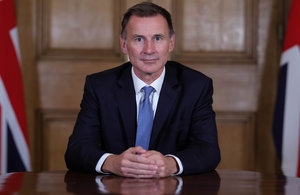It was was a landmark government u-turn yesterday when new Chancellor Jeremy Hunt scrapped almost all of the mini-Budget published by his predecessor Kwasi Kwarteng.
But despite the dramatic headlines, not everything was ditched.
The controversial scrapping of the cap on bankers’ bonuses remains, for instance, although Mr Hunt made no mention of it in his Monday announcement.
The Treasury later told the BBC that the controversial plan to remove the cap was going ahead.
Meanwhile, plans to cut National Insurance contributions and a reduction in stamp duty, which are already going through Parliament, will also go ahead, as will the cancellation of the Health and Social Care Levy.
A planned increase to the tax on dividends will also remain. It was increased by 1.25% in April, but was supposed to be reversed in April next year. That reversal will now be cancelled.
Also set to stay are increases to Seed Enterprise Investment Scheme limits and reforms to Company Share Option Plans.
The new Chancellor did reverse a total of £32bn-worth of cuts from the mini-budget.
Mr Hunt grabbed the headlines by abandoning plans to cut the basic rate of income tax in April and freeze alcohol duty from February, as well as limit government help on energy bills to next April, rather than for the next two years as had been previously planned.
Those changes came after the Government had already axed plans to scrap the 45p rate of income tax for top earners and had U-turned on a promise not to increase Corporation Tax. Mr Hunt also shelved changes to IR35 rules for freelance workers.
The biggest saving for the Government from the mini-budget U-turn was keeping plans to raise Corporation Tax to 25%. The previous Chancellor had proposed to scrap the increase and maintain Corporation Tax at 19%. Keeping the increase will raise £18.7bn by 2026-27. Meanwhile scrapping the cut in the basic rate of income tax from 20p to 19p will save £5.9bn.
Keeping the planned increase to the tax on dividends will raise £0.9bn while shelving the changes to the IR35 rules will add £2bn to the Treasury’s coffers. Cancelling a plan to reintroduce tax-free shopping for tourists will raise £2.1bn while allowing alcohol duties to rise instead of being frozen in February will add £0.6bn.
But Mr Hunt must still find billions more in savings with experts believing there is still a black hole of up to £40bn in the public finances to fill.
Reaction to Mr Hunt’s statement was mixed.
Liz Field, chief executive of PIMFA, said: “We welcome the Chancellor’s endeavours to bring stability - and return confidence - to the financial markets, which pension savers and investors rely on to secure their financial future.”
But she noted that there are still issues to resolve, “not least of which is the rate of inflation and its impact on the overall economy and on interest rates.”
Alastair Black, head of industry change at Abrdn, said the, “announcements mean advisers and clients will once again have to revisit their strategies. And, as the Chancellor has indicated, there’s the potential for even more disruption to come, meaning a lingering uncertainty that will need to be factored-in to every client plan.”
Kevin Boscher, chief investment officer at the investment services group Ravenscroft, said: “With the new Chancellor apparently running the show, the UK can look forward to an extended period of ‘stagflation’, recession, falling real incomes, higher borrowing costs and rising unemployment.”
What’s next? We will discover what Mr Hunt’s plans are on 31 October when he will announce his medium-term fiscal plan. He gave an indication of what it may contain when he warned there would be, “more difficult decisions to take on both tax and spending.”
Meanwhile Prime Minister Liz Truss will attempt to rally her Cabinet at a meeting on Tuesday. She has reportedly already met senior ministers over drinks and nibbles at an informal meeting in Downing Street on Monday evening.
Whether her charm offensive works and allows her to still be in the hot seat by the time Mr Hunt makes his next fiscal statement remains to be seen.

